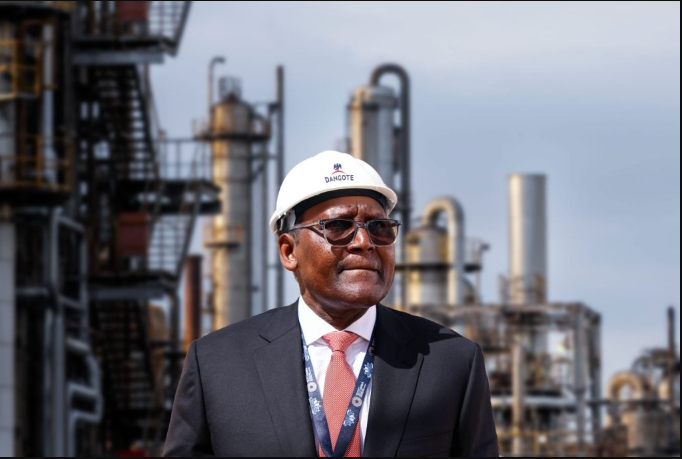Africa’s richest man, Aliko Dangote, has responded to the recent U.S. tariff hike on Nigerian urea exports, asserting confidence in Nigeria’s continued competitiveness in the global fertilizer market. The U.S. government recently imposed tariffs of up to 14% on Nigerian non-oil exports, including urea, a key agricultural product that plays a vital role in the country’s diversification strategy.
Speaking in an interview covered by Bloomberg Africa, Dangote revealed that he is “comfortable” with the impact of the tariff increase, especially when compared to other countries like Algeria, which are reportedly facing even higher levies.
“Even with the tariffs imposed by the United States, Nigeria remains cost-effective. Algeria, for instance, is facing far greater challenges with their export costs,” — Aliko Dangote, via Bloomberg Africa, April 2025.
Context: Why the U.S. Imposed Tariffs
The United States Trade Representative (USTR) announced earlier this year that certain countries, including Nigeria, would face revised tariff structures as part of a broader recalibration of trade policies. While this move is seen as part of the U.S. effort to protect domestic industries, critics have argued that it disproportionately affects developing economies trying to build non-oil export revenue.
For Nigeria, urea fertilizer exports represent a growing segment of its trade diversification efforts, especially with the Dangote Fertilizer Plant in Lekki — one of the largest in the world — producing up to 3 million metric tonnes annually. This facility has been instrumental in making Nigeria a key global supplier of urea, exporting to markets across South America, Asia, and now North America.
Why Dangote Is Still Optimistic
Despite the new tariff burden, Dangote maintains that Nigeria holds several advantages:
-
Lower Production Costs: With local access to natural gas and a strategic refinery complex, Nigeria can produce urea more cheaply than some competitors.
-
Geographical Advantage: Nigeria’s location on the West African coast facilitates easier maritime transport to Europe and the Americas.
-
Strong Demand: The global demand for urea remains high due to the critical need for fertilizers in agriculture and food production.
Additionally, Dangote emphasized that higher U.S. tariffs on Algerian exports have, in a way, balanced the playing field. This makes Nigerian urea more attractive to international buyers despite the tariff imposition.
Broader Implications for Nigerian Trade
While Dangote remains confident, the U.S. tariff decision raises broader questions for Nigeria’s economic diversification strategy. The non-oil export sector, which includes fertilizers, solid minerals, textiles, and agricultural goods, is vital for reducing Nigeria’s reliance on crude oil.
According to the National Bureau of Statistics (NBS), Nigeria’s non-oil exports rose by 39% in 2024, with urea contributing significantly to that growth. The Federal Government’s 2025 Economic Roadmap aims to further scale up this growth with increased private sector involvement and international partnerships.
However, experts warn that sudden tariff increases from global trade partners could stifle competitiveness and discourage foreign direct investment unless Nigeria strengthens its trade diplomacy and value-added production.
Conclusion: Resilience Amid Trade Shocks
Dangote’s calm response to the U.S. tariffs signals confidence not just in his enterprise but in Nigeria’s ability to weather external economic pressures. His remarks reflect a broader belief that with continued investment in industrial infrastructure and smart trade strategies, Nigeria can maintain a competitive edge in global markets.
But it also serves as a call to action for policymakers: Nigeria must solidify its global trade position through strategic alliances, incentivizing local production, and protecting exporters from volatile international policies.
Stay updated on Nigerian trade and economic developments at Xamblog.com
Last Updated on May 3, 2025 by kingstar





